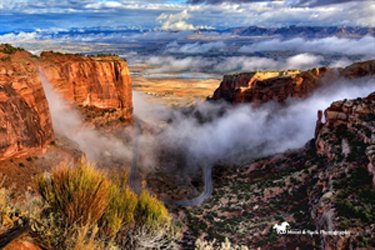87% of Bureau of Land Management Bureaucrats Quit When Trump Moved the Agency to Colorado
Bureau of Land Management, Colorado, Federal Land, Grand Junction
The Federal Bureau of Land Management regulates and controls the huge percentages of Federal-owned land Out West — 84.9% 0f Nevada, 64.9% of Utah, 61.6% of Idaho, 61.2% of Alaska, 52.9% of Oregon, 48.1% of Wyoming, 45.8% of California, 38.6% of Arizona, 35.9% of Colorado, 34.7 of New Mexico, 29% of Montana, 28.5% of Washington. Their policies and decisions, needless to say, have tremendous impact of the economies and the lives of residents of the states where they ruled unchecked over vast portions.
God forbid that those federal viceroys and satraps should be forced to live among their subjects in a picturesque city of a mere 60,000 at the Western end of Colorado. Can you even get shawarma out there?
Personally, I don’t see how there could possibly be more eloquent proof that the wrong people are in charge in that agency, and that the federal government ought to quit squatting on 30-80% of any state’s land and should get busy transferring its ownership to the people.
The Trump administration’s decision to relocate most Bureau of Land Management headquarters staffers out West — a move designed to shift power away from the nation’s capital — prompted more than 87 percent of the affected employees either to resign or retire rather than move, according to new data obtained by The Washington Post.
The exit of longtime career staffers from the agency responsible for managing more than 10 percent of the nation’s land shows the extent to which the Trump administration reshaped the federal government. The reorganization plan reestablished the bureau’s headquarters in Grand Junction, Colo., moved 328 positions out of the main D.C. office of the Department of the Interior — BLM’s parent agency — and left 60 jobs in place.
A total of 287 BLM employees either retired or found other jobs, according to Interior communications director Melissa Schwartz, while 41 people moved to the new office in [Grand Junction] Colorado. Asked for comment on how the shift affected the bureau’s operations, Schwartz declined to comment.




